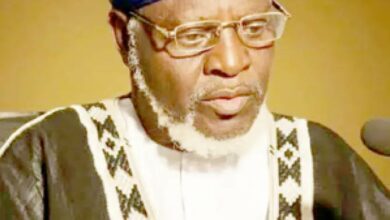A.M. Yerima Allegedly Escaped Assassination in Abuja After FCT Confrontation
A.M. Yerima Allegedly Escaped Assassination in Abuja After FCT Confrontation

A.M. Yerima Allegedly Escaped Assassination in Abuja After FCT Confrontation
In the often opaque corridors of Nigerian public service, a dramatic episode involving Lieutenant A.M. Yerima of the Nigerian Navy and Minister Nyesom Wike has shaken public discourse.
On Sunday, November 16, reports emerged that Yerima, fresh from a widely circulated confrontation with the FCT Minister, Nyesom Wike, narrowly escaped what military sources described as a possible assassination attempt. Witnesses say he was trailed by unidentified men dressed in black, riding in two unmarked Hilux vans with no number plates, before he executed a “strategic manoeuvre” to evade them.
This chilling incident forces Nigerians to grapple with multiple layers of unease. Only days before, a viral video showed Yerima and Wike locked in a bitter land dispute in the Gaduwa district, a clash that quickly ignited debate on social media and drew in retired military veterans who accused Wike of publicly disrespecting the uniform. Now, an alleged tailing in broad daylight suggests that the stakes are far higher than mere reputation.
Lieutenant Yerima is not a civilian operative wandering outside his jurisdiction, he’s a commissioned naval officer. According to fact-checkers, his deployment is lawful: his assignment to a retired naval chief is legitimate, and there is no conclusive connection between him and high-ranking retired generals beyond a coincidental surname. But in Nigeria, uniformed officers are often caught in the crossfire of political authority, especially where land and influence intersect. The fact that military veterans are openly threatening to “occupy” the office and residence of a sitting minister if he dares penalize Yerima underscores just how fraught these relationships can be.
The use of unmarked vans, no number plates, these are hallmarks of clandestine operations. If this was a genuine attempt on Yerima’s life, it raises disturbing questions: Who ordered it? What was the motive? Was it a crude warning, or something more sinister? For now, the investigation remains “serious,” but details are being withheld to avoid jeopardizing security efforts.
However, as some commentators have pointed out, there is room for caution. The narrative could very well be manipulated. In a social media age, where people talk about anything and say anything they like heroism and martyrdom are easily constructed and amplified, the question is, is it being used as a political tool?
That skepticism is not unfounded. When a junior officer becomes a symbol, he risks being tokenized or worse, instrumentalized. And yet, if this threat is genuine, the consequences for civil-military relations in Nigeria are profound. It would suggest that dissent or simply standing one’s ground is punishable by force, even against a uniformed officer.

So where does Nigeria go from here? First, the investigation must be thorough, transparent, and independent. The public deserves to know whether this was a politically motivated intimidation, a private vendetta, or a deeper conspiracy. Second, this should serve as a wake-up call: the interplay between political power and security institutions must be managed with accountability. No civilian or official should be above the law and no soldier should be threatened simply for doing his duty.
Finally, Nigerians must guard against premature hero worship. Standing by Yarima is one thing but turning him into a lightning rod for factional battles is another. If this episode is truly about the rule of law, then our support must be disciplined, principled, and focused on justice, not spectacle.
At Kpomkwem News, we are closely monitoring this unfolding story and will bring you updates as more information becomes available.






















